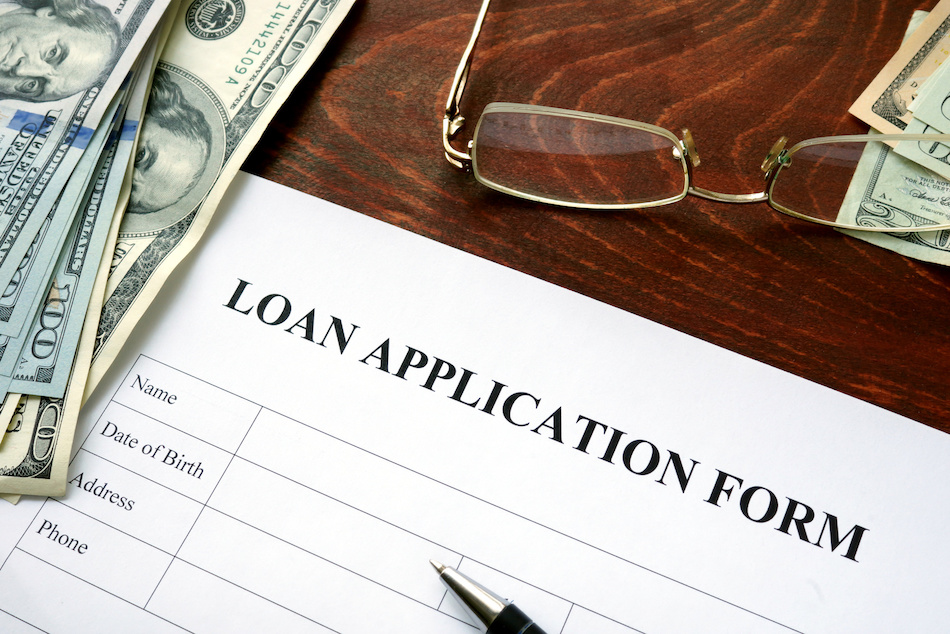How to Buy a Home Using an FHA Loan
Posted by Gary Ashton on Thursday, April 25th, 2024 at 12:42pm.
 Many first-time home buyers find themselves overwhelmed with the countless considerations, options, and obstacles involved in financing the purchase. Federal Housing Administration (FHA) loans can be a great option. An FHA loan is one of the best ways for first-time homebuyers to make a downpayment, thanks to requirements as low as 3.5% for qualified buyers. Overall, they make homeownership possible for many people who otherwise couldn't make this aspect of the American Dream a reality. Before you apply, here is everything you need to know about buying a home with an FHA loan.
Many first-time home buyers find themselves overwhelmed with the countless considerations, options, and obstacles involved in financing the purchase. Federal Housing Administration (FHA) loans can be a great option. An FHA loan is one of the best ways for first-time homebuyers to make a downpayment, thanks to requirements as low as 3.5% for qualified buyers. Overall, they make homeownership possible for many people who otherwise couldn't make this aspect of the American Dream a reality. Before you apply, here is everything you need to know about buying a home with an FHA loan.
Why Do People Apply for FHA Loans?
Getting a traditional mortgage is not always easy for home buyers, especially those buying their first home. Depending on your circumstances, saving up for a downpayment of 10% or more can be extremely difficult. For example, homes in Davidson County, which encompasses Nashville and a few neighboring communities, have an average value of more than $425,000. For first-time homebuyers, saving up more than $40,000 for a 10% downpayment could take years.
FHA loans are designed to provide some minor accommodations to buyers who could not buy a home otherwise. FHA loans offer more flexible requirements on:
- Minimum credit score for approval
- Maximum debt-to-income ratio for mortgage payment and total debt
- Minimum down payment
Suppose you're living in Murfreesboro, and your income is enough to make a mortgage payment comfortably. Homes in Murfreesboro have a median listing price of $630,000, translating to a 10% downpayment of $63,000. If you have a sufficient credit score and meet the requirements for an FHA loan, the 3.5% downpayment of just over $22,000 is much easier to save up for. Those few extra percentage points in a maximum debt-to-income ratio could allow you to buy a home in your area much sooner than you'd otherwise be able to.
How Do I Qualify for an FHA Loan?
Homebuyers must meet certain requirements in order to be eligible for an FHA loan. It starts with a credit score of 500 or higher, and a 580 credit score is required to qualify for a loan with a down payment of 3.5%. You must be able to come up with the money for the down payment and for a small amount of closing costs. When you apply for an FHA loan, you do not receive money from the FHA itself; instead, the FHA guarantees loans from various banks and lenders in your area. That way, the lenders will likely approve a loan for you.
Do FHA Loans Have Special Requirements for Home Buying?
The FHA is very specific about the types of home sales that lenders should approve. In most cases, it affects what the seller can require of the purchase. In a traditional home sale, you make a purchase offer. If your offer is accepted, you negotiate with the seller to decide who covers any necessary repairs and make a plan for the closing costs. FHA sets limits on the amount you can offer for a home depending on the area. A home inspection is required to determine whether the property meets the FHA's Minimum Property Standards.
What Are the FHA's Minimum Property Standards?
When purchasing a home with an FHA loan, understanding the Federal Housing Administration's Minimum Property Standards (MPS) is crucial. These standards ensure that the property meets certain safety, security, and structural integrity criteria, protecting both the borrower and the lender. The MPS cover a range of factors, including the condition of the roof, electrical systems, plumbing, heating, and ventilation.
Additionally, the property must be free from health hazards such as lead-based paint and mold. Meeting these standards not only ensures the property's habitability but also safeguards the investment for the buyer. Prior to closing, an FHA-approved appraiser will assess the property to ensure compliance with the MPS. While the standards may vary slightly depending on the property type and location, adhering to them is essential for securing FHA financing and ensuring a sound investment in your new home.
Options for Homes That Don't Meet Minimum Property Standards
When a home doesn't meet the FHA's Minimum Property Standards, both buyers and sellers have options to consider. Buyers may negotiate with the seller to address necessary repairs before closing, request a credit to cover the costs of repairs or explore renovation financing options such as the FHA 203(k) loan. However, if you're buying in a seller's market, it may be difficult to convince the sellers to negotiate or make any accommodations.
Sellers can choose to make the required repairs themselves, offer credits to the buyer, or adjust the sale price to reflect the property's condition. Open communication and collaboration between both parties are key to finding a mutually beneficial solution that allows the transaction to proceed smoothly.
FHA Loan Limits

FHA loan limits play a significant role in the home buying process for those seeking financing through the FHA. These limits define the maximum loan amount borrowers can qualify for based on the property's location. They vary by county and are influenced by factors such as median home prices and local housing market conditions.
To get a general sense of FHA loan limits, consider the 2024 figures: depending on your location, FHA loan limits range from just under $500,000 to just over $1.1 million. The variance of loan limits can have a major impact depending on county lines. For example, homes in Williamson County, TN, have average prices more than 60% higher than in neighboring Davidson County. Therefore, the FHA loan limits are likely to be significantly higher in Williamson County than in Davidson.
Understanding FHA loan limits is crucial for buyers, as it determines their purchasing power and the type of properties they can consider. Additionally, these limits help ensure that FHA loans remain accessible to a broad range of borrowers, particularly those purchasing homes in more expensive areas. Buyers should consult the FHA's website or speak with a mortgage lender to determine the loan limits for their desired location. By staying informed about FHA loan limits, buyers can make informed decisions and navigate the homebuying process with confidence.
How Can I Entice Sellers to Accept a Purchase Offer?
Because of the additional responsibilities of the seller, some sellers are wary of accepting offers from buyers with funding guaranteed by an FHA loan. The trick is to find the right seller or try to catch sellers at a good time. For example, a homeowner trying to sell a home for several months might be more willing to shoulder some added costs just to get the home off the market. If you live in a hot real estate market, you might consider increasing the amount of your purchase offer to sweeten the deal for sellers.
FHA Loans: Flexible & Viable Financing for Homebuying
No matter how you finance your home, you always want to make sure that your offer is reasonable for your budget and will leave you with the funds you need for moving and any customization you want to do once you move in. In exchange for more stringent buying restrictions, FHA loans often allow buyers to purchase a home without investing quite as much at the outset. This enables many prospective homebuyers to make a purchase when they otherwise may not have been able to.

Gary Ashton
The Ashton Real Estate Group of RE/MAX Advantage
The #1 RE/MAX team in the World!
